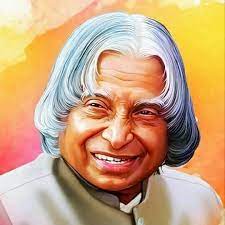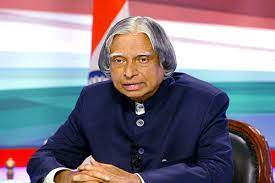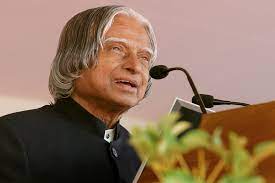Tribute to A P J Abdul Kalam
“Excellence is a continuous process and not an accident.”- A.P.J. Abdul Kalam These words come from the man who knew excellence at close quarters, Late A.P.J Abdul Kalam. The 11th President of India was a scientist turned politician who left a mark not just in Indian but also in the world history. He has been honored with the Bharat Ratna, the highest civilian honor an Indian can receive. He was elected the President unanimously by Bharatiya Janata Party and opposition Indian National Congress in the year 2002. He served his term from 2002 to 2007 and then returned to his sacred life of education and science.

APJ Abdul Kalam's Childhood and Early Life
Abdul Kalam had to struggle a lot to reach the success he has achieved in his career. He has been a live manifestation of the strength he describes in this quote. Avul Pakir Jainulabdeen Abdul Kalam or A.P.J Abdul Kalam was born on 15 October, 1931 to a humble Tamil Muslim family. He had to sell newspapers his his childhood in order to manage the finances of the family. He was an average student in school but his
keen interest in studies and his hard work are what helped him achieve success in his career.

Kalam graduated in Physics from Tiruchirapalli’s St Joseph’s College, which was affiliated with the University of Madras, in 1954. In the year 1955, Kalam pursued Aerospace Engineering from Madras Institute of Technology. Kalam wanted to become a fighter pilot for IAF but missed the opportunity as there were only eight positions and Kalam qualified ninth.
Kalam’s journey to become the ‘missile man of India’ had its trials and tribulations and yet he attained his goal because of his singleminded devotion. After he completed his engineering, he joined DRDO’s Aeronautical Development Establishment as a scientist. He also designed a helicopter for the Indian Army in the beginning of his career. Kalam was still not sure of his career choice. In 1969, Kalam was transferred to the Indian Space Research Organisation (ISRO). In ISRO, he headed the project of India’s first Satellite Launch Vehicle (SLV-III). The growth of Kalam began here from a mere scientist to become the missile man of
India itself. He headed several successful launches and started gaining recognition in relevant circles.
A Tribute from India to Dr Kalam
India plans to pay a great tribute to late Shri APJ Abdul Kalam. The New Brahmos Hypersonic is to be named after Dr Kalam. The missile will travel at the speed of 8,575 kmph and will have seven times the speed of Mach 7. It is being developed by Indo Russian unit BrahMos Aerospace. There couldn’t
be a greater tribute to a man who has been responsible for such a progress in missile engineering in India.

His most significant contribution to India, however, was yet to come. Dr Kalam also had the distinction of working with political parties across the ideological spectrum. For instance, he was appointed as the scientific advisor to the defence minister under the PV Narsimha Rao government. Dr Kalam played a critical role in India's 1998 nuclear weapon test under the leadership of then Prime Minister Atal Bihari Vajpayee. And while the international community expressed displeasure over the development and even imposed economic sanctions on India, the May 1998 Pokhran-II tests made Dr Kalam a household name.
In 1999, when Mr Vajpayee returned to power, Dr Kalam served as the principal scientific adviser to the government until 2001. A year later, he succeeded KR Narayanan as the President of India. Dr Kalam was honoured with Padma Bhushan in 1990 and Bharat Ratna in 1997, the country's highest civilian honour.
Awards and Honours
Dr Kalam has been honored with the Padma Bhushan in 1981, Padma Vibhushan in 1990 and the Bharat Ratna in 1997. He has also been honored with National Space Society’s Von Braun Award in the year 2013. He has received honorary doctorates from 40 universities around the world. After his death, the Tamil Nadu Government has declared 15 October as Youth Renaissance Day. The United Nations Organisation has declared 15 October, Dr Kalam’s birthday, as World Student’s Day.


